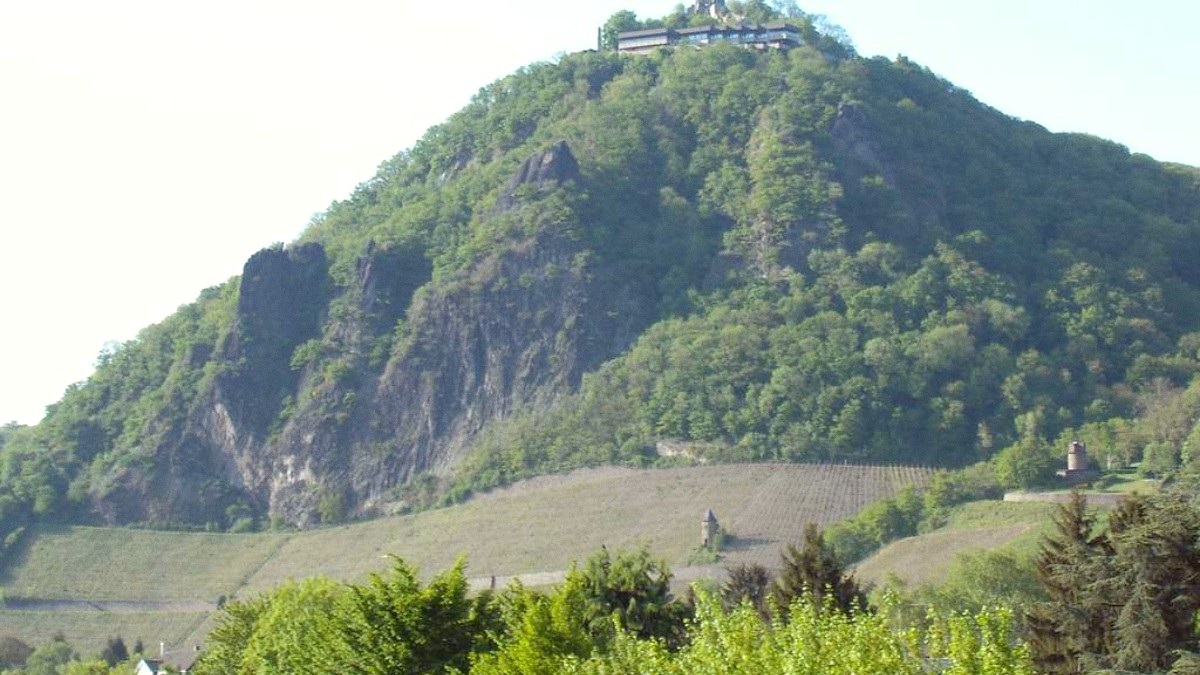
North Rhine Westphalia, Germany
German food often includes meat (pork and beef are common), potatoes in various forms, and a wide variety of breads. North Rhine-Westphalian cuisine, influenced by its Rhineland location, has unique characteristics.
As a former capital and university city, Bonn's culinary scene is diverse, with a strong presence of international influences alongside traditional German fare. The city reflects a blend of traditional Rhineland cooking and cosmopolitan tastes.
Pork, beef, potatoes, cabbage (sauerkraut, red cabbage), rye bread, apples, onions, and mustard are staples. Flavors are savory, sometimes with a sour note. Spices like caraway, marjoram, and juniper berries are used. Beer in cooking is common.
Himmel un Ääd: "Heaven and Earth" combines mashed potatoes with stewed apples, typically served with blood sausage and fried onions. Rheinischer Sauerbraten: A marinated pot roast, traditionally beef, slow-cooked until tender with a rich, sweet-sour sauce, often with raisins or gingerbread. Usually comes with potato dumplings or red cabbage. Reibekuchen: Crispy potato pancakes, often served with apple sauce.
Breakfast (Frühstück): 7-10 AM, with rolls, cold cuts, cheese. Lunch (Mittagessen): 12-2 PM, often the main meal; "Mittagsmenü" specials. Coffee & Cake (Kaffee und Kuchen): 3-4 PM afternoon tradition. Dinner (Abendessen/Abendbrot): From 6 PM, can be lighter at home or full hot meals at restaurants.
A tender, marinated beef pot roast, slow-cooked and served with a rich, slightly sweet-sour gravy, often featuring raisins or gingerbread. It comes with potato dumplings (Knödel) or red cabbage. Find this dish in traditional German restaurants.
Hearty, flavorful, and a Rhineland classic.
"Heaven and Earth" is mashed potatoes and stewed apples, served with blood sausage and fried onions. Reibekuchen are crispy potato pancakes, often with apple sauce, smoked salmon or crème fraîche. Both are local specialties or popular snacks.
Comfort food from the region.
Currywurst: Grilled sausage with ketchup and curry powder, often with fries. Döner Kebab: Shaved meat in pita with salad and sauces, very popular. Bratwurst: Classic grilled sausage in a bun with mustard or ketchup.
Quick and satisfying bites.
A soft, chewy baked good, often sprinkled with coarse salt. A popular snack found in bakeries.
A layered chocolate sponge cake with whipped cream, cherries, and a hint of cherry brandy.
Bonn hosts several high-end dining experiences, perfect for a special occasion.
Numerous options exist for a comfortable meal without a high price point.
Affordable and quick dining is widely available throughout Bonn.
Bonn's history as a federal capital and an university town led to a wide array of international restaurants. You will find Italian, Turkish, Indian, Chinese, Japanese, Thai, Vietnamese, and many other cuisines. This variety means almost any craving can be satisfied.
Explore different neighborhoods for a broader selection of global flavors.
From sushi bars to authentic curry houses and falafel stands, international dining options are abundant. Many smaller, family-run establishments offer genuine culinary experiences from their home countries.
Use online reviews to discover highly-rated international spots.
Daily market (Mon-Sat) on Markt square for fresh produce and food stalls.
Sample local cheeses, baked goods, and seasonal fruits.
Discover small-batch jams, honey, and other artisanal foods.
Some stalls offer freshly prepared seafood and fish.
Several Turkish and Middle Eastern restaurants in Bonn offer halal meat. Look for "Halal" signs or inquire at ethnic eateries.
These restaurants are often found in diverse neighborhoods.
Kosher food availability is limited in Bonn. It is best to seek out specialized stores in larger cities like Cologne or Frankfurt, or consider bringing packaged kosher items with you for convenience.
Planning ahead for kosher meals is advisable.
Beyond Glühwein, try roasted almonds (Gebrannte Mandeln), Reibekuchen, and waffles at the Christmas markets. These create a festive and delicious atmosphere.
Use apps like HappyCow to locate vegetarian and vegan restaurants. Always communicate clearly with restaurant staff about any allergies or dietary restrictions you may have.
Some local cooking schools or private chefs may offer classes focusing on German or Rhineland cuisine. These provide practical skills and cultural insight into local cooking methods and ingredients.
Food tours, like those by "Eat the World," might be available. They typically focus on local specialties and neighborhood eateries, offering a guided culinary walk and historical insights.
The surrounding rural areas, like the Vorgebirge region, have farms that sell local produce directly. The nearby Ahr Valley, a renowned wine region, has numerous wineries with tastings and tours.
Dining at a traditional "Brauhaus" (brewery restaurant) is a quintessential German experience. It combines locally brewed beer with hearty, traditional German food in a lively atmosphere. This truly immerses you in local culture.
Try Brauhaus Bönnsch for an authentic feel.
Some university cafeterias (Mensa) may allow public access, offering very cheap meals. This is an unique way to experience local student life and eat on a minimal budget.
Inquire locally about public access for the Mensa.
Bonn offers a wide spectrum of dining, from traditional German to a rich selection of international cuisines.
Seek out Rhineland specialties like Sauerbraten and Himmel un Ääd, paired with local beers like Kölsch.
Time your visit for Spargelzeit (asparagus season) or the festive Christmas markets for unique culinary treats.
Many restaurants close between lunch and dinner service, typically from 2 PM to 5 PM. Check opening hours before planning your meal. Larger restaurants in tourist areas may have continuous service.